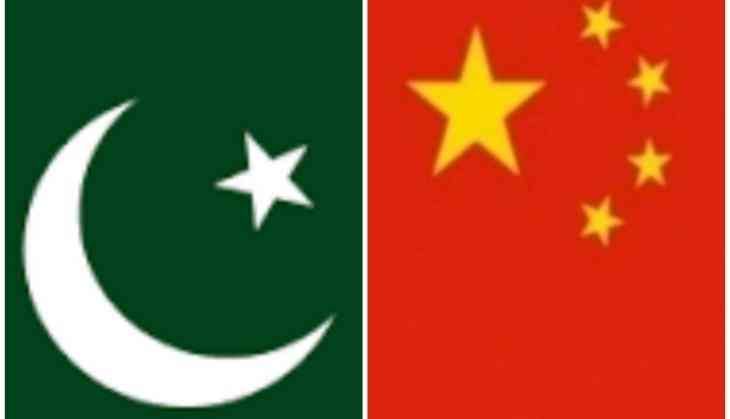
Pakistan and China often speak of their "all-weather friendship," but according to an expert on South Asian affairs, the truth is that the relationship has always been one of cynicism.
In article published on the website foreignpolicy.com, C. Christine Fair, an associate professor at the Center for Peace and Security Studies at Georgetown University's Edmund A. Walsh School of Foreign Service, referring to much promoted multi-billion dollar China-Pakistan Economic Corridor (CPEC), argues that Pakistan should actually be worried about the way the project is shaping up.
"If it is even partially executed, Pakistan would be indebted to China as never before. And unlike Pakistan's other traditional allies, such as the United States, China will probably use its leverage to obtain greater compliance from its problematic client," Fair opines.
She further goes on to state that, "The project is more inclined to leave Pakistan burdened with unserviceable debt, while further exposing the fissures in its internal security."
Focusing on the terror threat angle, Professor Fair is of the view that China is particularly concerned about Islamist militant groups active among its Uighur Muslim population in Xinjiang Province.
"Uighur militant groups have long shared ties with groups in Afghanistan and Pakistan, some of which have been patronised by the Pakistani state, such as the Afghan Taliban. China has used religious and political oppression, along with crude violence, to eviscerate the Islamist revival among Xinjiang's Uighers and has counted on Pakistan to give China political cover while doing so," she says in her article.
In the article, Fair appears to caution Pakistan not to take on what she calls this "Chinese debt" in the shape of the CPEC, because Islamabad may also face the risk of "severely worsening its already critical relations with India, which has been watching the CPEC drama unfold with growing alarm".
Ostensibly, CPEC will connect Pakistan to China's western Xinjiang province through the development of vast new transportation and energy infrastructure. The project is part of China's much-hyped One Belt and One Road (OBOR) Initiative, a grand and increasingly vague geopolitical plan to bridge Eurasia.
Professor Fair is convinced that through the decades past "China has cultivated Pakistan through the provision of military assistance; diplomatic and political cover in the U.N. Security Council; and generous loan aid in an effort to counter both American influence and the system of anti-Communist Western treaty alliances."
She adds that "China (has) also sought to embolden Pakistan to harangue India, but not to the point of war because that would expose the hard limits of Chinese support", and cites the India-Pakistan Wars of 1965, 1971, 1999 as examples to back her claim.
"China did little or nothing to bail out its client (Pakistan) in distress," Professor Fair says.
Professor Fair says that the bold claims of Pakistan and China notwithstanding, "there are many reasons to be dubious about the purported promises of CPEC."
There's already violence all along the corridor; the region is in the throes of a slow-burning insurgency, be it the Muslim Uighur minority in China, or the majority Sunni Vs minority Shia clashes in Pakistan. There are environmental and demographic concerns, and costs, frequent resentful episodic protests that are ruthlessly put down and a prolonged drought in the Balochistan region to boot.
There is no guarantee of economic competitiveness in relation to the project, as the prime objective should be "to offer a safer and shorter route from the Arabian Sea to Central Asia."
She concludes by saying, "Pakistani citizens also have no way to know what CPEC will cost them. Neither government has been clear about what projects are part of the plan. Costing has been completely opaque. China sets the price, contracts the work out to Chinese companies, and saddles Pakistan with the loans."
-ANI


